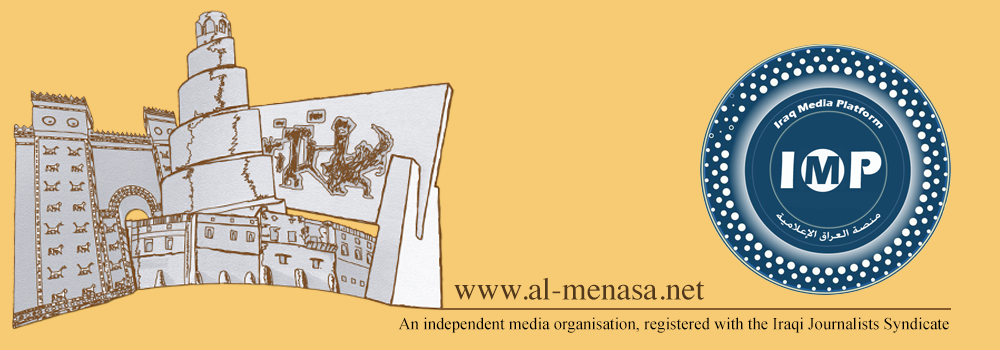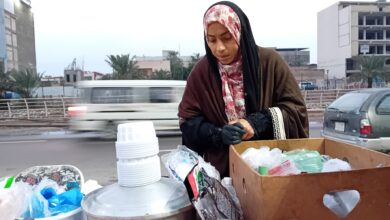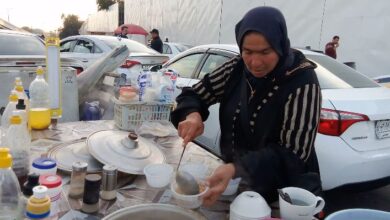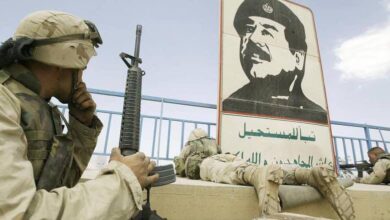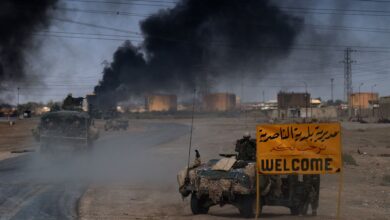TO POLITIC OR NOT TO POLITIC: That is the question Iraq’s anti-government protesters are asking now

There may be as many as 60 political parties competing in Iraq’s upcoming federal elections, all of which want to represent the voters of the southern province of Nasiriyah.
By Alaa Koli
But far from being a good sign for Iraq’s democracy, some say this number is simply too high.
“Too many political entities will weaken the [anti-government] protest movement, rather than strengthening it,” says Anwar al-Haidari, a political analyst and professor of political science at Baghdad University.
“The October demonstrations made many demands,” he continues, referring to 2019’s anti-government protests that led to the occupation of Baghdad’s Tahrir Square and spread to many other cities in the country. “That included confronting the political party situation in the country. The protestors should not just reproduce the same experience by forming multiple parties,” al-Haidari argues.
There has been some confusion about who the many parties are supposed to represent. Media reports suggest that many are simply fronts for established political parties and armed factions and political observers in the city worry that the large number and the confusion will only distract unknowing voters in October’s elections.
The established and powerful parties are working to ensure the failure of these new projects in many different ways, including through violence.
In Nasiriyah, a city that ended up at the forefront of 2019’s demonstrations, there has been a heated debate about demonstrators’ participation in the elections at all. While they were protesting, many of the young demonstrators said they would never participate in such a flawed political process, “controlled by corrupt elites”. However, as the protests have died away, that has slowly changed and over the past few months, several prominent groups and members of the protests announced that they too would be forming political parties and taking part in federal elections later this year.
“Nasiriyah has a special status makes it different from other Iraqi cities,” Ali al-Aboudi, a local researcher and political observer, told Al Menassa. “It has seen decades of marginalization, unemployment and poverty and in recent years there has been a further deterioration in living conditions. All this has increased locals’ resentment and sense of exclusion,” he argued.
Al-Aboudi isn’t sure that participating in the elections can help with some of the protest movement’s goals – things like achieving some measure of justice for those who were killed in cold blood while demonstrating. Their murderers remain at large.
For others though, the new political parties are a continuation of the protests and a process they want to invest in.
“The protesters’ move to establish parties signifies an important transition,” explains Mohammed Tamimi, an activist and protester who does support the new parties. “It proves that the protestors are emerging from isolation and beginning to understand the rules of the game.”
There is some hope that some of the new parties will be able to break through in parliament, especially after the passing of a new electoral law. This new law was passed in November 2020 and it divides each of Iraq’s 18 provinces into 83 different electoral districts. In the past, one party could win larger electoral districts and select candidates from their party lists. But now the seat in parliament will go to whoever wins the most votes in the smaller, more local districts.
Tamimi and his colleagues don’t expect the new political parties to win the elections completely but he does think they will help educate young Iraqi voters, “raising awareness and attracting the youth who don’t believe in the traditional Islamist political parties”.
Simply demonstrating on the streets won’t achieve any progress, Tamimi insists, it will only result in more deaths and injuries.
It’s now about competing with their opponents on the same field, another activist and a member of one of the new political parties, Sadiq Ali, says. Still, he admits, it won’t be easy. In fact, he thinks it could be just as challenging as demonstrating on the streets.
“These new parties face many problems, such as the lack of financial support, lack of organizational expertise and security threats,” he explained. The latter has caused many of the leaders of the new parties to go into hiding. And, he notes, “the established and powerful parties are working to ensure the failure of these new projects in many different ways, including through violence.”
